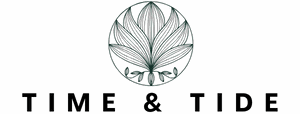Building habits can feel like trying to teach a cat to fetch—frustrating and often met with resistance. Yet, the right book can turn that stubborn feline into a loyal retriever. The journey to better habits doesn’t have to be a lonely one, and thankfully, there’s a treasure trove of literature ready to guide the way.
From inspiring tales to practical strategies, these books offer the wisdom and humor needed to transform daily routines into lifelong practices. Whether it’s mastering the art of waking up early or finally conquering the gym, these reads promise to equip anyone with the tools to succeed. Dive in and discover how a few pages can lead to life-changing habits—because who doesn’t want to be the best version of themselves, preferably with a side of laughter?
Table of Contents
ToggleBest Books for Habit Building
Numerous books offer effective strategies for building and sustaining habits. “Atomic Habits” by James Clear stands out for its actionable approach to habit formation and the concept of compound growth. Readers find practical steps to change their daily routines effectively.
“Mindset” by Carol S. Dweck introduces a pivotal idea: adopting a growth mindset can lead to positive habit changes. It emphasizes the importance of viewing challenges as opportunities for development.
In “The Power of Habit,” Charles Duhigg explores the science behind habits and how they influence behavior. This book provides insights and real-life examples, facilitating a better understanding of habit loops.
“Better Than Before” by Gretchen Rubin delves into the specific factors that contribute to self-control. It offers different strategies based on personality types, catering to diverse readers’ needs.
“Make Your Bed” by Admiral William H. McRaven focuses on small daily habits contributing to overall success. This straightforward book inspires readers to cultivate discipline through seemingly simple actions.
“The 7 Habits of Highly Effective People” by Stephen R. Covey provides a well-rounded framework for personal and professional effectiveness. Its principles address both mindset and practical applications for building lasting habits.
No single book fits everyone, but exploring these varied perspectives can lead to empowered habit-building journeys. Each title presents unique insights that can foster personal transformation.
Key Principles of Habit Formation
Building effective habits relies on understanding their nature and the scientific principles that support their development. Individuals can achieve lasting changes by grasping these core elements.
Understanding Habits
Habits consist of cues, routines, and rewards. A cue triggers the behavior, leading to a routine that delivers a reward. Recognizing these components helps individuals identify triggers influencing their actions. For instance, waking up early might stem from a morning alarm (cue), following it with a workout (routine), ultimately yielding energy for the day (reward). Small adjustments in routines can lead to significant improvements over time.
The Science Behind Habit Building
Neuroscience reveals that habits form through consistent repetition, establishing neural pathways in the brain. These pathways strengthen with practice, making habitual actions more automatic. Research indicates that the brain’s basal ganglia play a crucial role in habit formation, streamlining decision-making processes. James Clear suggests that making tiny changes consistently results in remarkable growth. Behavioral psychologists emphasize the power of the environment in shaping habits, asserting that modifying surroundings can promote positive changes effectively.
Top Recommended Books
Numerous books offer valuable insights for building habits effectively. Each title provides unique strategies and approaches.
“Atomic Habits” by James Clear
“Atomic Habits” emphasizes the power of small changes. James Clear presents a framework that enables readers to build effective habits through incremental improvements. The book highlights the concept of compound growth, encouraging readers to recognize how tiny adjustments can lead to significant transformations over time. Practical strategies such as the four laws of behavior change offer a step-by-step method for habit formation, making this book a critical resource for anyone looking to enhance their daily routines.
“The Power of Habit” by Charles Duhigg
In “The Power of Habit,” Charles Duhigg explores the science behind habits. Duhigg introduces the habit loop model, which consists of cues, routines, and rewards. Understanding these components helps readers identify patterns in their behavior and make conscious changes. The book also shares compelling narratives and case studies about individuals and organizations that transformed their habits successfully. Insights from neuroscience support the content, providing a robust foundation for readers seeking to understand habit formation.
“Mindset” by Carol S. Dweck
“Mindset” focuses on the significance of adopting a growth mindset. Carol S. Dweck argues that viewing challenges as opportunities fosters personal development. This perspective encourages individuals to embrace effort and persistence in their habit-building journey. The book discusses how beliefs shape outcomes, emphasizing the ability to grow and change through dedication. With actionable strategies, readers learn to cultivate resilience and achieve lasting success through a commitment to continuous improvement.
“The 7 Habits of Highly Effective People” by Stephen R. Covey
“The 7 Habits of Highly Effective People” offers a comprehensive framework for personal effectiveness. Stephen R. Covey outlines key habits that contribute to success in both personal and professional life. These habits emphasize principles such as proactivity, synergy, and continual renewal. The book inspires readers to prioritize their values and align their actions with their goals. By providing clear guidelines and practical applications, Covey empowers individuals to take charge of their lives and foster meaningful habits.
How to Implement Lessons from These Books
Applying insights from habit-building books improves the likelihood of success. Readers benefit from strategic plans based on the lessons learned.
Creating a Reading Plan
Establishing a reading plan enhances focus and retention. Identify specific books to read each month. Allocating daily time for reading builds consistency, ensuring that it becomes a regular part of the routine. Summarizing key takeaways after each chapter aids in reinforcing essential concepts. Engaging with book clubs or online forums adds accountability and offers different perspectives. Tracking progress on a calendar or app fosters motivation. This structured approach supports readers in absorbing valuable lessons effectively.
Setting Achievable Goals
Defining achievable goals is crucial for maintaining motivation. Start with small, specific goals centered around the habits readers aim to build. Using the SMART criteria—Specific, Measurable, Achievable, Relevant, Time-bound—translates overarching aspirations into manageable steps. Regularly reviewing and adjusting these goals keeps individuals aligned with their progress. Breaking larger goals into smaller milestones promotes a sense of accomplishment. Celebrating these achievements, no matter how minor, reinforces positive behavior. Ultimately, ensuring that goals align with personal values enhances commitment.
Embracing the journey of habit building can lead to profound personal growth. The right books offer valuable insights and strategies that transform challenges into manageable steps. By exploring various perspectives and applying the lessons learned, individuals can cultivate habits that align with their goals and values.
It’s essential to remember that habit formation is a gradual process. Engaging with these resources not only provides practical tools but also fosters a sense of community and accountability. As readers dive into these pages they’ll find inspiration and motivation to take action. Ultimately, the path to lasting change begins with the first step of choosing to read and implement the wisdom found within these influential books.









